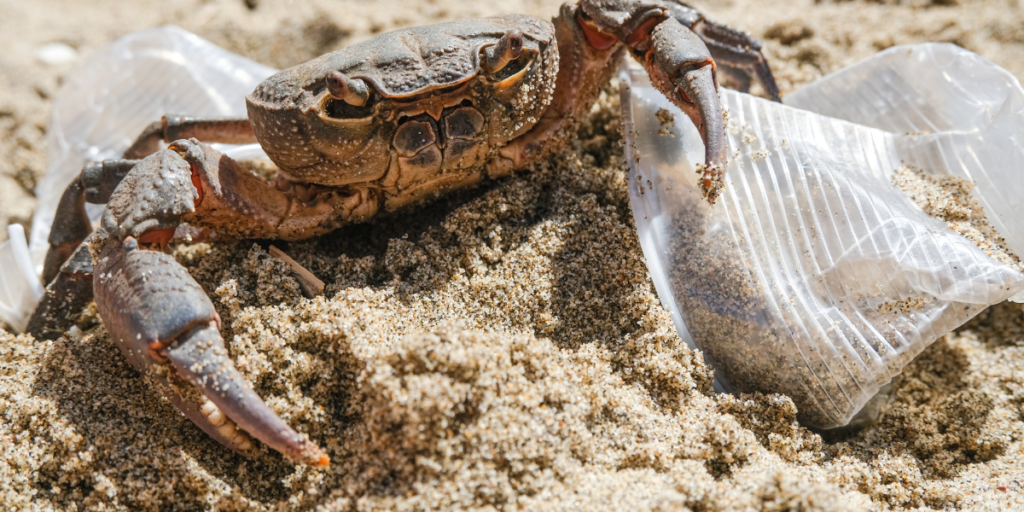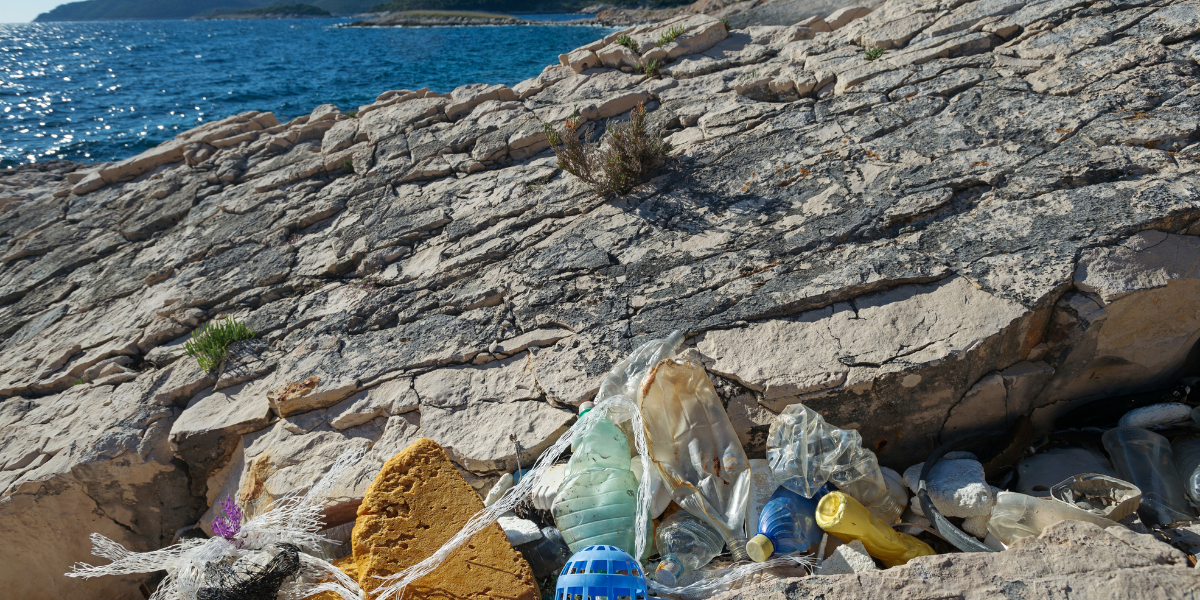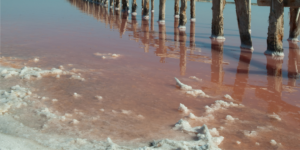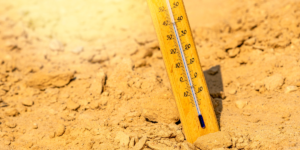Beneath the Waves: Examining the Top Threats Facing Marine Ecology
Are you curious about the challenges faced by our oceans and their inhabitants? Marine ecology is a complex system that supports an abundance of life forms, but it also faces various threats that are rapidly increasing in intensity and frequency.
The major threats to marine ecology include pollution, overfishing, climate change, habitat destruction and invasive species. These factors have resulted in significant changes in oceanic environments leading to devastating effects on marine organisms.
It’s important to understand these threats so we can develop strategies to protect our oceans for future generations.
Key Takeaways
- Pollution and overfishing are major threats to marine life and disrupt the balance of the food chain.
- Climate change causes rising ocean temperatures, coral reef damage, and ocean acidification, affecting animal populations and food webs throughout the marine ecosystem.
- Habitat destruction caused by human activities, such as pollution, overfishing, and coastal development, poses a significant risk to marine ecology.
- Invasive species can cause irreversible damage by outcompeting and displacing native species, altering food webs, changing nutrient cycling patterns, and modifying physical habitats. Management strategies must be implemented to prevent or reduce the spread of invasive species.
Pollution
Hey, did you know that pollution is seriously messing with our ocean’s ecosystem? Plastic waste and oil spills are two of the biggest culprits.
Millions of tons of plastic waste end up in our oceans every year, harming marine life and disrupting the food chain. Animals mistake plastic for food, causing blockages in their digestive systems which can lead to starvation or suffocation.
Oil spills pose an even greater threat to marine ecology as they not only harm animals but also affect entire ecosystems. Oil spills kill large numbers of fish, birds and other wildlife directly by poisoning them or destroying their habitats.
The effects can be felt for years after the spill has occurred as it takes time for the environment to recover. These threats are unfortunately all too real and require immediate action if we want to protect our oceans and the creatures that inhabit them.
Overfishing
You’re probably unaware that 90% of the world’s fish stocks are fully exploited, overexploited or depleted due to overfishing. This alarming statistic means that we are fishing at an unsustainable rate, and if we continue this way, it will have devastating effects on our marine ecosystem.
Overfishing not only depletes the population of certain species but also disrupts the balance of the entire food chain.
Sustainable fishing practices and fish stock management are crucial in mitigating the impacts of overfishing. Governments around the world need to implement policies that limit fishing activities in certain areas and regulate how much each vessel can catch. By doing so, we can give fish populations a chance to recover and ensure that future generations can enjoy seafood without harming our oceans.
It’s important for individuals to also do their part by making informed choices when purchasing seafood products and supporting sustainable fishing practices.
Climate change
Did you know that if we don’t take action on climate change, the ocean’s temperature will continue to rise and cause irreparable damage to fish habitats? This can lead to a significant decrease in seafood availability, which will not only affect the marine ecosystem but also harm human societies that depend on fishing.
Climate change is also causing an impact on coral reefs as they’re unable to adapt quickly enough to the changes in water temperature. The rising temperatures cause corals to expel algae living within them, leaving them white and vulnerable.
Moreover, another significant consequence of climate change is ocean acidification. As carbon dioxide concentrations increase in the atmosphere due to human activity such as burning fossil fuels, more carbon dioxide gets dissolved into the ocean water. This causes a decrease in pH levels, making it more acidic.
Ocean acidification makes it difficult for certain animals like mollusks and crustaceans to build their shells or skeletons, leading to population decline and affecting food webs throughout the marine ecosystem.
Therefore, taking measures like reducing carbon emissions can help mitigate these impacts and protect our oceans’ health for generations ahead.
Habitat destruction
It’s not like you needed those trees and forests anyways, go ahead and bulldoze them for profit; who cares about the animals that depend on them?
This is how habitat destruction often seems to occur.
Destruction of marine habitats is a major threat to the ecology of our oceans. It can be caused by human activities such as pollution or overfishing, but one of the most significant drivers of habitat loss is land use change.
Coastal development, tourism, urbanization, and agriculture are all examples of land use changes that lead to habitat loss.
The impact of tourism on marine habitats has been particularly concerning in recent years. Coral reefs and seagrass beds are among the most affected ecosystems due to increased tourist activity.
However, there are solutions for habitat restoration such as reducing coastal development and creating protected areas where ecosystems can regenerate.
It’s essential to understand that losing these valuable habitats will have severe consequences not only for marine life but also for humans who rely on these ecosystems for food and livelihoods.

Invasive species
Invasive species pose a significant risk to natural ecosystems and can cause irreversible damage. These species are non-native organisms that are introduced into an ecosystem where they do not naturally occur. They reproduce quickly, compete with native species for resources, and often have no natural predators in their new environment.
As a result, invasive species can outcompete and displace native species, alter food webs, change nutrient cycling patterns, and even modify physical habitats. Ecological impact is the most concerning issue caused by invasive species. Invasive species can cause declines or extinctions of native plant and animal populations which can disrupt the balance of an entire ecosystem.
Management strategies must be implemented to prevent or reduce the spread of invasive species. These strategies include early detection and rapid response programs, physical removal of invasive individuals or populations, application of herbicides or pesticides to control populations, biological control using natural enemies like predators or parasites specific to the invader’s origin region, and public education campaigns about preventing the introduction of exotic pets or plants into the environment.
By implementing these strategies, we can help protect marine ecology from further damages caused by invasive species.
Conclusion
Congratulations, you’ve learned about the major threats to marine ecology! It’s important to understand these challenges and take action to protect our oceans.
Pollution remains one of the biggest threats facing marine life today. Plastic waste, oil spills, and chemicals from agriculture and industry all contribute to harming marine ecosystems. In fact, a recent study found that over 8 million metric tons of plastic enter the ocean every year – that’s equivalent to dumping a garbage truck full of plastic into the water every minute!
Overfishing is another serious problem that impacts both commercial fisheries and the health of ocean ecosystems. When too many fish are removed from an area, it can disrupt entire food chains and lead to imbalances in populations. One study found that around 90% of large predatory fish like tuna and swordfish have disappeared from our oceans due to overfishing.
In order to address these issues and help protect our oceans for future generations, it’s crucial that we work together as individuals, communities, and nations. By reducing our use of single-use plastics, advocating for sustainable fishing practices, supporting policies that protect marine habitats, and taking other actions to reduce our impact on the environment – we can make a real difference in preserving this precious resource.
As famed oceanographer Jacques Cousteau once said: “The sea holds some of the most beautiful wonders of nature but also some of its gravest dangers.”Let’s work towards protecting these wonders before they disappear forever.




